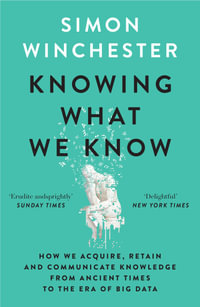
Structures and Algorithms
Mathematics and the Nature of Knowledge
Hardcover | 19 March 2018
At a Glance
FREE SHIPPING
Hardcover
$187.31
Aims to ship in 7 to 10 business days
ISBN: 9783319729732
ISBN-10: 331972973X
Series: Logic, Argumentation & Reasoning
Published: 19th March 2018
Format: Hardcover
Language: English
Number of Pages: 146
Audience: Professional and Scholarly
Publisher: Springer Nature B.V.
Country of Publication: CH
Dimensions (cm): 23.39 x 15.6 x 0.97
Weight (kg): 0.38
Shipping
| Standard Shipping | Express Shipping | |
|---|---|---|
| Metro postcodes: | $9.99 | $14.95 |
| Regional postcodes: | $9.99 | $14.95 |
| Rural postcodes: | $9.99 | $14.95 |
How to return your order
At Booktopia, we offer hassle-free returns in accordance with our returns policy. If you wish to return an item, please get in touch with Booktopia Customer Care.
Additional postage charges may be applicable.
Defective items
If there is a problem with any of the items received for your order then the Booktopia Customer Care team is ready to assist you.
For more info please visit our Help Centre.
You Can Find This Book In
This product is categorised by
- Non-FictionPhilosophyEpistemology & The Theory of Knowledge
- Non-FictionLanguage & LinguisticsLinguisticsPhilosophy of Language
- Non-FictionMathematicsPhilosophy of Mathematics
- Non-FictionComputing & I.T.Computer ScienceMathematical Theory of Computation
- Non-FictionMathematicsMathematical FoundationMathematical Logic
- Non-FictionMathematicsHistory of Mathematics
- Non-FictionComputing & I.T.Computer Programming & Software Development























